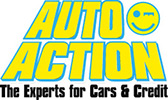
The long-term financial benefits of knowing how to make your car last longer can save you thousands of dollars. How big? One estimate from Consumer Reports stated $30,000 could be saved by keeping a car on the road for 15 years. Cars are lasting longer these days and the truth is in the numbers. In 1995, the Department of Transportation reported that the average age for all cars on the road was 8.4 years. In 2009 it was 9.5 years. Today, that number is 11 years.
Longevity relates to a number of factors, including improvements in automotive technology, corrosion prevention, better lubricants, and advancement in powertrains and so on. But the key to making your car last longer begins with you. With proper care and routine maintenance, motorists can ensure the longevity of their cars. The better you take care of your car the longer it will last. Here are several ways to help you realize savings and putting your hard-earned money elsewhere:
1. Stay on Top of the Scheduled Maintenance
Car owner’s manuals have a detailed outline of what maintenance should be done and when. This includes regular oil and filter changes along with inspections of your car’s tires, brakes, and fluid levels. Following the maintenance schedule listed in your car’s owner’s manual is the best way to prolong the life of your car.
2. Maintain Tire Pressure
Tire pressure can increase or decrease due to a number of factors, such as when temperatures rise or fall. When tire pressure is off, it can cause unnecessary wear on the tread, more fuel consumption, negatively affect the way the car handles and drives, and lead to unwanted maintenance for your car.
3. Keep Your Car Clean
Washing your car not only makes it look good but will also help increase its lifespan. A buildup of grime, dirt, dust, mud, and road salt on the exterior can damage the paint. Washing your car at least once a month can prevent premature rust and corrosion. On the interior, make sure carpets are clean and dry. Damp carpets will eventually mold and seep moisture onto the frame that can lead to corrosion. Wiping down the dashboard and consoles, seats and other fabric prevents aging, cracking and wear, which also helps to make the car last longer.
4. Let Your Car Warm Up
When you first start your car let the engine warm up before driving. Wear and damage to engines occur when starting it from cold and speeding off. When an engine is cold, the oil is cold and less viscous. Most of it has settled to the bottom and needs to be pumped throughout the engine to become effective. Let the oil circulate for approximately 60 seconds, i.e., one minute. Then drive gently until the temperature gauge is normal.
5. Avoid Continual Short Trips
If you continually take short trips, your car’s engine doesn’t have a chance to reach operating temperature, which can cause wear and damage to engine parts. What happens on short trips relates to engine combustion. Water is a byproduct of the combustion that gets into a car’s oil and exhaust system each time an engine runs. It also mixes with the fuel when the car is first started. Your engine needs to get hot, to boil the moisture out of the fuel, oil, and exhaust, which takes longer trips of ten miles or more to burn off. Schedule short trips together—the grocery store, bank, drug store, etc.—and you’ll extend the life of your car.
6. Avoid Abrupt Stops and Quick Acceleration
Abruptly braking or sharply accelerating is harmful to your car’s longevity. It can cause unnecessary wear and damage to the brake pads, brake discs, and rotors, but acceleration can hurt the gearbox, transmission, and stress the engine.
7. Learn to Park Correctly
To avoid scratches, dings, and dents, always park within the defined painted lanes, whether it’s in a parking lot or parallel parking slot on a street. Do not park at an angle. Accumulating dings, dents and scratches to a car’s surface can lead to corrosion.
8. Avoid Heavy Loads
Constantly carrying excessive loads can be harmful to your car. It can cause wear to your car’s tires, suspension, steering, brakes, transmission, engine, and decrease fuel efficiency. Carry only what you need or use and get rid of the useless stuff. It’s only weighing you down.
If you’re in the market for a quality used car check out our extensive inventory or contact us today!
